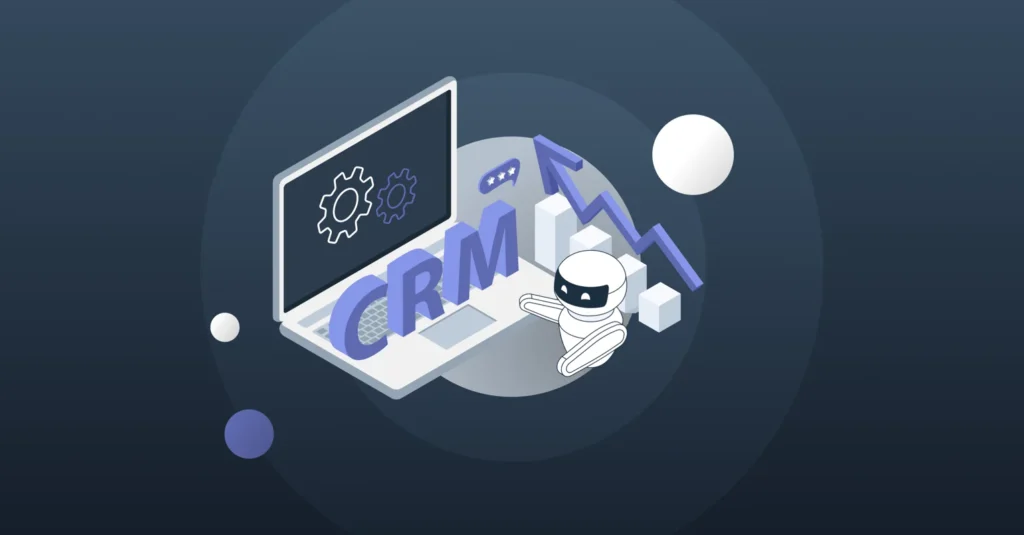In today’s competitive market, local service businesses face unique challenges. Managing customer relationships, staying organized, and maintaining communication can quickly become overwhelming without the right tools. That’s where a Customer Relationship Management (CRM) system comes into play. At DataDrivenHQ, we specialize in helping local service businesses streamline their operations with a CRM system that drives growth, enhances customer experience, and increases efficiency. In this article, we’ll explore why a CRM is more important than ever for local service businesses and how it can transform the way you manage your customers.

1. The Growing Need for Streamlined Operations
Local service businesses, such as plumbers, electricians, landscapers, and home improvement contractors, deal with many moving parts. Scheduling, client communication, billing, and follow-ups can be challenging to manage manually. A CRM system provides a centralized platform to manage all customer-related tasks, ensuring everything runs smoothly.
- Why It Matters: Managing everything manually can lead to missed appointments, lost leads, and frustrated customers.
- How It Helps: A CRM helps you organize customer data, track interactions, and automate essential processes like scheduling and follow-ups, making operations more efficient.
2. Improving Customer Relationships and Retention
One of the core functions of a CRM is to improve customer relationships. By storing detailed customer information, preferences, and previous interactions, you can offer more personalized service. In an industry where customer trust and satisfaction are key, having a CRM ensures you never miss an opportunity to build and strengthen relationships.
- Why It Matters: Repeat customers are the lifeblood of local service businesses, and providing them with personalized, responsive service is crucial.
- How It Helps: A CRM allows you to track customer history, preferences, and past service issues, enabling you to tailor your interactions and deliver exceptional service.
3. Automating Communication and Follow-Ups
In service industries, follow-ups are essential. Whether it’s checking in after a service call, sending a thank-you message, or reminding a customer about an upcoming appointment, automated communication through a CRM can save time and reduce the risk of errors. Automating these processes ensures that no customer is left forgotten.
- Why It Matters: Manual follow-ups can be missed or delayed, leading to lost business or customer dissatisfaction.
- How It Helps: A CRM automates follow-up emails, reminders, and customer outreach, ensuring timely communication without manual effort.
4. Better Lead Management and Conversion Tracking
Local service businesses rely on generating leads from multiple sources: online inquiries, referrals, and word-of-mouth. A CRM system helps capture these leads and tracks them through the sales funnel. From initial inquiry to job completion, a CRM provides visibility into each lead’s status, enabling you to focus on high-potential opportunities.
- Why It Matters: Without a CRM, leads can easily slip through the cracks, resulting in missed opportunities and lost revenue.
- How It Helps: A CRM enables you to track leads, manage interactions, and prioritize follow-ups, ensuring that each potential client is nurtured and converted.
5. Streamlining Billing and Invoicing
One of the key pain points for local service businesses is managing billing and invoicing. A CRM can integrate with accounting software, allowing you to create invoices, track payments, and manage outstanding balances directly within the system. This automation reduces manual input and minimizes errors, allowing you to focus more on serving your clients.
- Why It Matters: Errors in invoicing can lead to payment delays or disputes, impacting cash flow.
- How It Helps: A CRM streamlines invoicing, ensuring timely and accurate billing, and allowing for better cash flow management.
6. Data-Driven Insights for Better Decision Making
A major advantage of using a CRM is the ability to access data-driven insights. CRMs collect data on customer behavior, service patterns, and operational performance, giving you valuable information to optimize your business. From understanding which services are most profitable to identifying customer trends, a CRM system helps you make smarter, data-backed decisions.
- Why It Matters: Local service businesses often operate with limited resources and need to make informed decisions quickly.
- How It Helps: A CRM provides actionable insights that allow you to optimize marketing, improve service offerings, and boost operational efficiency.
7. Enhancing Marketing and Customer Engagement
A CRM allows you to segment your customers based on various criteria, such as service needs, location, or frequency of use. This segmentation enables you to send targeted marketing campaigns, promotions, and newsletters, increasing customer engagement and driving repeat business.
- Why It Matters: Generic marketing efforts can be inefficient, leading to lower engagement and fewer conversions.
- How It Helps: With a CRM, you can tailor your marketing to different customer segments, delivering personalized content that resonates and drives results.
8. Scaling Your Business with Efficiency
As your local service business grows, managing more customers, appointments, and data manually becomes unsustainable. A CRM system scales with your business, offering tools to manage a growing customer base, track performance, and ensure consistency in service delivery.
- Why It Matters: Growth requires efficient systems that can handle increased demand without compromising quality.
- How It Helps: A CRM system grows with your business, helping you manage more clients, streamline workflows, and maintain high service standards.
Conclusion
In today’s competitive market, local service businesses need a CRM more than ever. From managing customer relationships and automating communication to improving operational efficiency and providing data-driven insights, a CRM is an essential tool for growing your business. At DataDrivenHQ, we provide CRM solutions that help local service businesses improve their workflow, enhance customer satisfaction, and boost profitability. Don’t let your business fall behind—embrace the power of CRM technology and take your service business to the next level.
Contact Us
Ready to take your local service business to the next level with a CRM system? Contact DataDrivenHQ for expert CRM solutions:
- Phone: +1 (442) 257-9401
- Email: help@datadrivenhq.com
- Website: datadrivenhq.com
